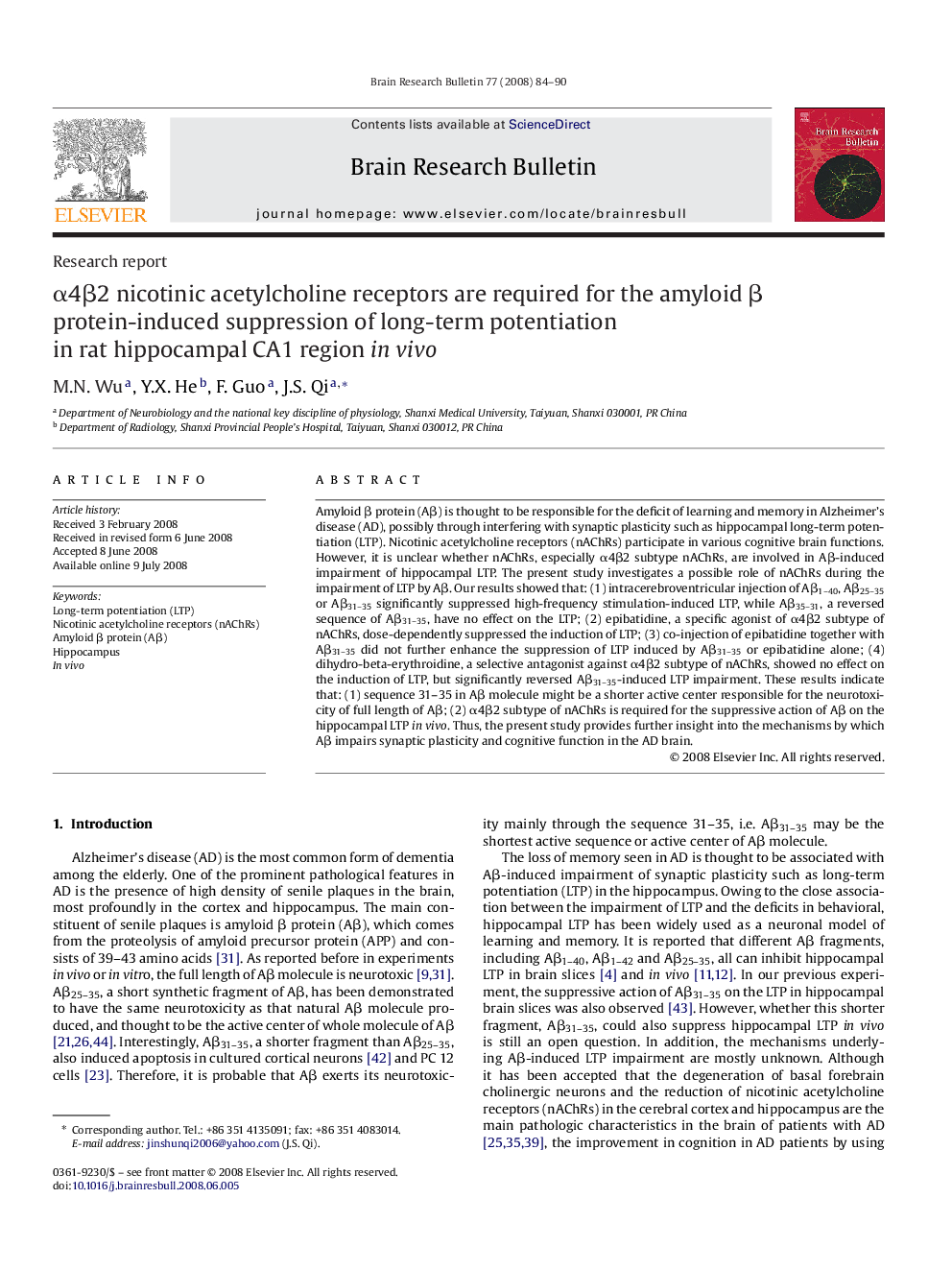| Article ID | Journal | Published Year | Pages | File Type |
|---|---|---|---|---|
| 4320013 | Brain Research Bulletin | 2008 | 7 Pages |
Amyloid β protein (Aβ) is thought to be responsible for the deficit of learning and memory in Alzheimer's disease (AD), possibly through interfering with synaptic plasticity such as hippocampal long-term potentiation (LTP). Nicotinic acetylcholine receptors (nAChRs) participate in various cognitive brain functions. However, it is unclear whether nAChRs, especially α4β2 subtype nAChRs, are involved in Aβ-induced impairment of hippocampal LTP. The present study investigates a possible role of nAChRs during the impairment of LTP by Aβ. Our results showed that: (1) intracerebroventricular injection of Aβ1–40, Aβ25–35 or Aβ31–35 significantly suppressed high-frequency stimulation-induced LTP, while Aβ35–31, a reversed sequence of Aβ31–35, have no effect on the LTP; (2) epibatidine, a specific agonist of α4β2 subtype of nAChRs, dose-dependently suppressed the induction of LTP; (3) co-injection of epibatidine together with Aβ31–35 did not further enhance the suppression of LTP induced by Aβ31–35 or epibatidine alone; (4) dihydro-beta-erythroidine, a selective antagonist against α4β2 subtype of nAChRs, showed no effect on the induction of LTP, but significantly reversed Aβ31–35-induced LTP impairment. These results indicate that: (1) sequence 31–35 in Aβ molecule might be a shorter active center responsible for the neurotoxicity of full length of Aβ; (2) α4β2 subtype of nAChRs is required for the suppressive action of Aβ on the hippocampal LTP in vivo. Thus, the present study provides further insight into the mechanisms by which Aβ impairs synaptic plasticity and cognitive function in the AD brain.
